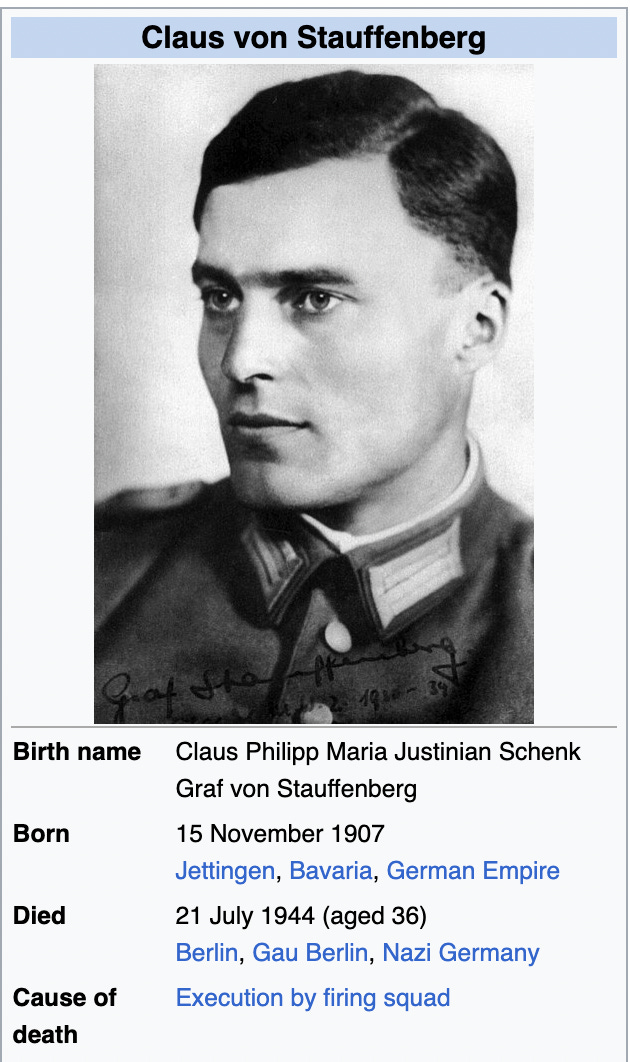On this day, 79 years ago, the 36-year-old German army colonel, Claus Schenk Graf von Stauffenberg, attempted to assassinate Adolf Hitler at his Wolf's Lair secret headquarters on the Eastern Front. Stauffenberg was scheduled to attend the daily briefing between the Hitler and the army high command. In his briefcase, he carried a time bomb. He deposited the briefcase on the floor under the conference table near Hitler, and then left the headquarters and returned to Berlin. The bomb detonated, but the explosive did not kill Hitler, and the plot to overthrow the Nazi regime was foiled. The following day, Claus was executed by firing squad, and many of his co-conspirators, including Field Marshall Erwin von Witzleben and the dissident pastor, Dietrich Bonhoeffer were executed by hanging.
It’s intriguing and disturbing to contemplate that the fate of millions —soldiers and civilians of many nations who were killed between July 20, 1944 and the war’s end almost ten months later—might have been entirely different if Claus and his co-conspirators had succeeded.
He was an exceptionally brave young man (with four children and a pregnant wife) who forged ahead with his plan despite receiving little encouragement and no guarantee of success. Though I acknowledge that my view of the matter is controversial, I believe the Allies made a huge mistake by refusing to support the German Resistance, which repeatedly sought to open lines of communication and cooperation with British and American intelligence. The plight of German resistance officers became especially difficult after Roosevelt and Churchill announced their policy of Unconditional Surrender in 1943.
Claus fully acknowledged that he was, legally speaking, committing High Treason, but he told his confidantes that he was obeying what he considered a higher duty to Natural Law and the imperative to show mankind that honorable German officers at least tried to oppose the criminal Nazi regime.
P.S.—I first read this story in the book, Plotting Hitler's Death : The German Resistance to Hitler, 1933-1945, by Joachim Fest, which I read in 1996. My impression of the story then, as it remains today, is that it is primarily that of a young man who tried to assassinate Hitler and was put to death for it the next day. It seems to me that these facts alone are the elements of a significant and dramatic story that is worth recounting on the anniversary of the assassination attempt.






Sadly, such honorable men were rare in 1944.
Are they less rare in 2023?
Just my opinion with what little I know about what actually took place in those days, but the US corp. were supporting Hitler's military as was the Vatican. Our news media knew Hitler was committing genocide of the Jews and others, but they turned a blind eye to it and they themselves were Jews. So, of course the US wasn't willing to help the German Resistance. What I've learned since I got old, was that this country's government, military, CIA especially, and corporations, are the most evil in this world. They do more killing than Hitler ever thought about doing. Remember Pearl Harbor, 9/11, covid vaccines, and many other incidences, that prove my point.